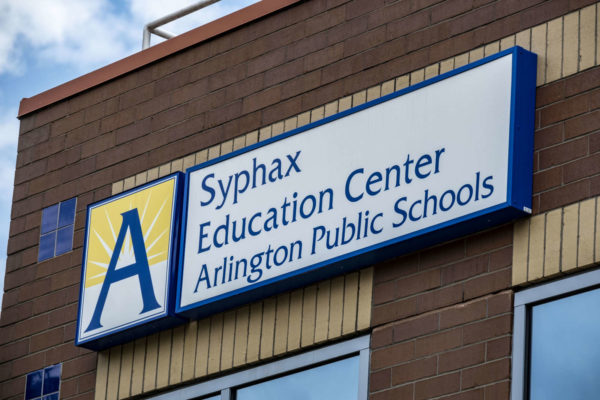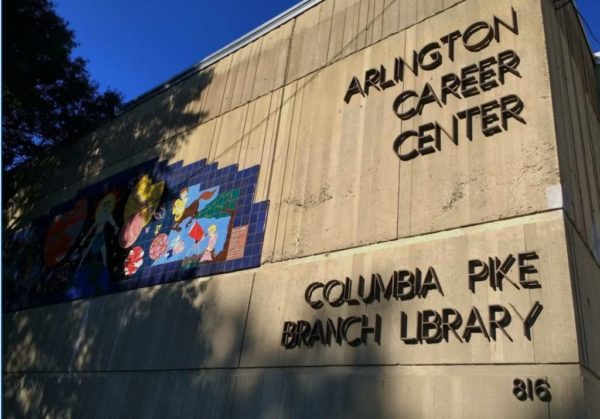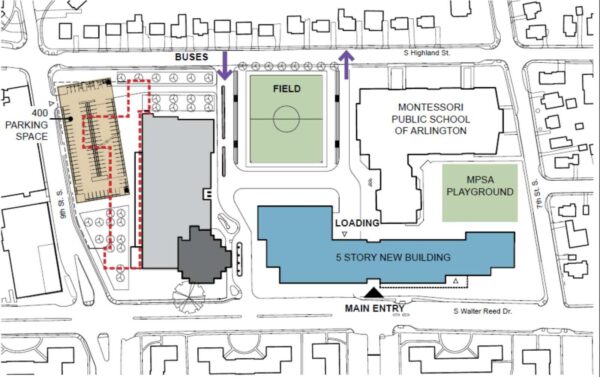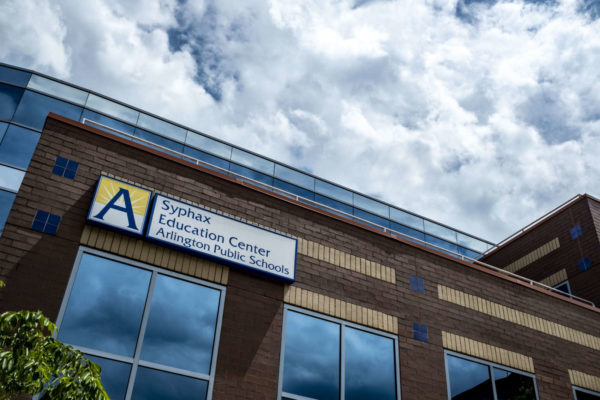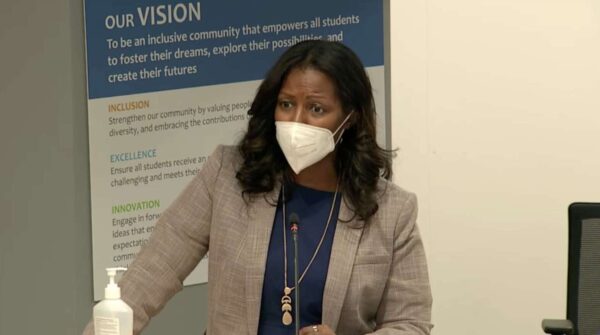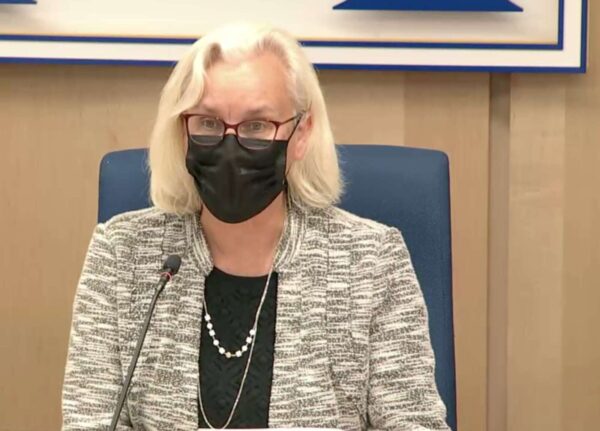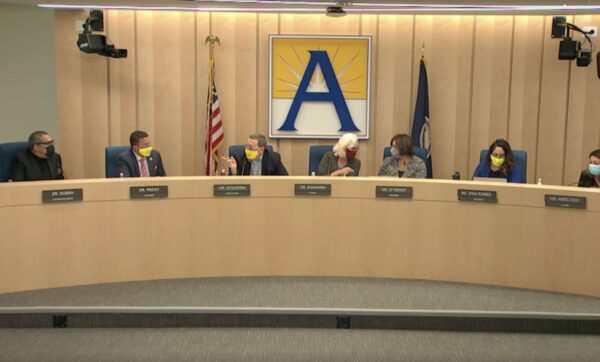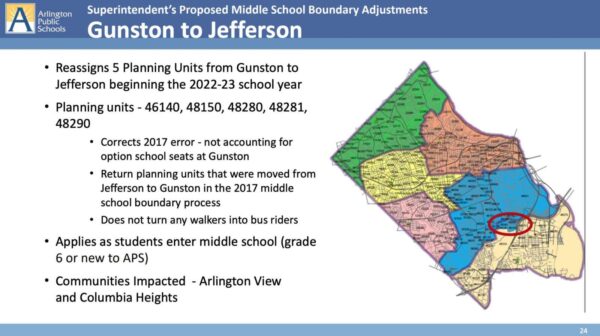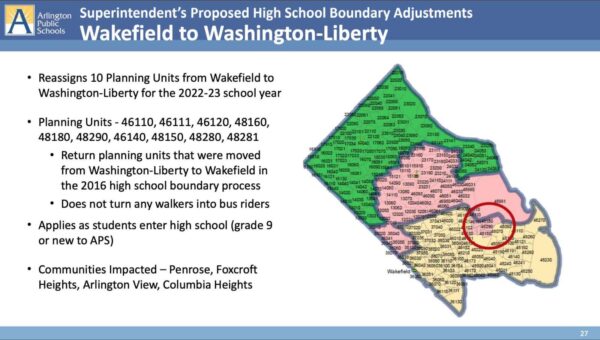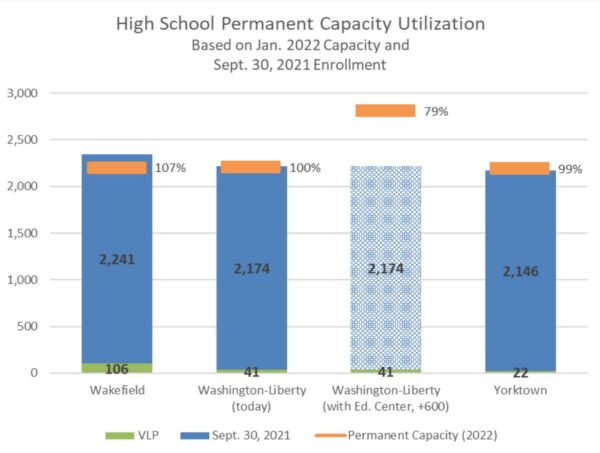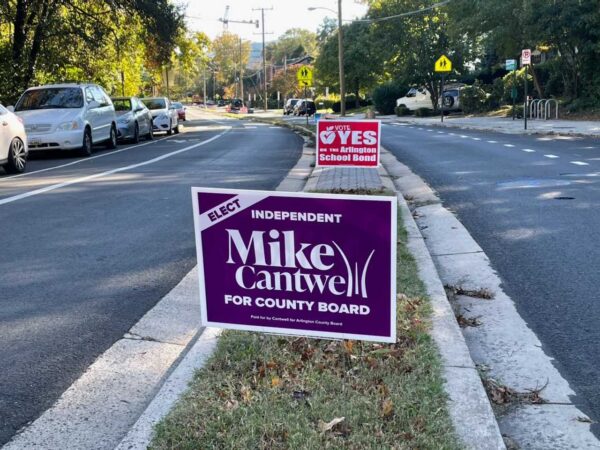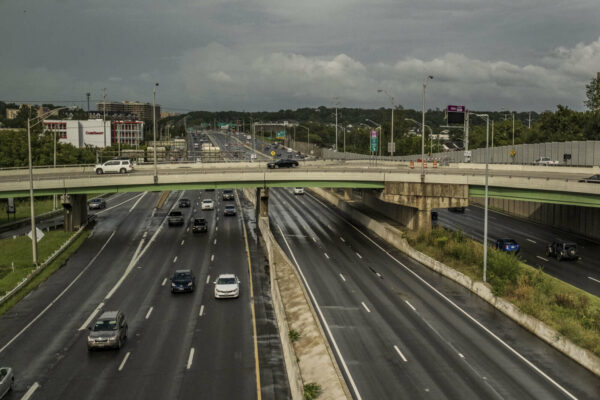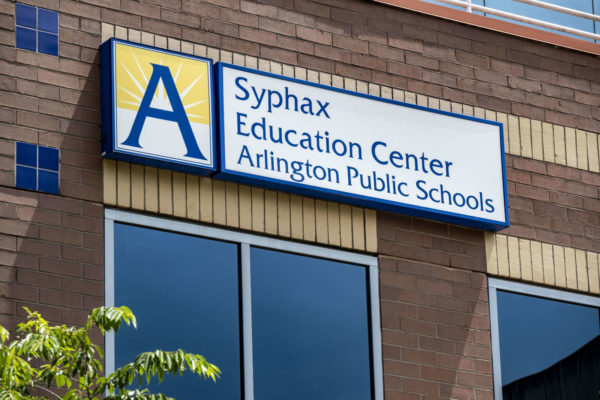(Updated at 12:45 p.m.) Superintendent Francisco Durán says Arlington Public Schools should hit the “pause” button on its Virtual Learning Program for next school year.
He’ll deliver this evaluation to the School Board during its meeting tonight (Thursday).
“The recommendation is to pause the program for next school year, as we take the time necessary to build a comprehensive virtual option program that will be sustainable and serve the needs of students who thrive in the virtual setting, for the long term,” APS Chief of School Support Kimberley Graves said in an email to families sent yesterday (Wednesday).
APS set aside $10.5 million in federal pandemic relief funds to create an in-house virtual option last summer for families with health and safety concerns about in-person learning as well as those waiting for the vaccine and those whose kids preferred online school.
Today, the VLP serves some 420 students, mostly children of color and many of whom have a disability, are economically disadvantaged students or are English-learning.
It got off to a rocky start due to severe staff shortages, and was plagued by issues related to communication, leadership turnover, teacher treatment and a lack of needed resources. By December, with enrollment dropping, rumors swirled that the program could come to an end — despite a mid-year update on the effort to aright it. Last month, administrators again reported progress, but did not address the speculation about the VLP’s future.
The proposed pause depends on a School Board vote scheduled for Thursday, Feb. 17. APS will hold a virtual town hall this month to address families’ questions and concerns, and staff will help students transition back to their home schools.
But APS is signaling that it’s open to running a virtual program long term. Graves said families will have opportunities to join a task force led by VLP Principal Danielle Harrell to develop a framework for a future virtual option.
Meanwhile, students may continue with virtual instruction through the state’s online learning platform, Virtual Virginia, if they or a family member has a medical condition that complicates going to school every day. APS staff will supplement whatever Virtual Virginia courses don’t cover and will support students during the transfer to their home schools.
“The success and well-being of your student(s) through the remainder of this school year, and throughout the transition back to in-person school at their school of record for the 2022-23 school year, are our priority and are the priority of our administrators and staff,” Graves said.
A special-education teacher told ARLnow that VLP staff were told they would be given priority for jobs within APS. She’s skeptical that a scheduled job fair for VLP staff will work for most teachers’ schedules, however.
A second grade teacher told ARLnow she feels betrayed by the decision.
“I’ve worked tirelessly over nights, weekends, and holidays to ensure my students have the best learning experience,” she said in an email. “Teachers came together to fight for this program every day, while having to welcome in new students on a consistent basis.”
She said teachers organized virtual events, field trips and after-school programs, spent hours creating content and bought their own programs, subscriptions and technology “so that our students never felt the inequities that were inevitably placed on them.”
“When there were staff shortages, we covered each other without extra pay. We skipped our personal lunch to eat with our students, missed prep periods, and took over classes without subs day in and day out to ensure our students were provided the best or nothing,” she said. “This is devastating to every individual who fought for VLP and worked hard to bring the program to fruition. It is a sad evening for us all.”


